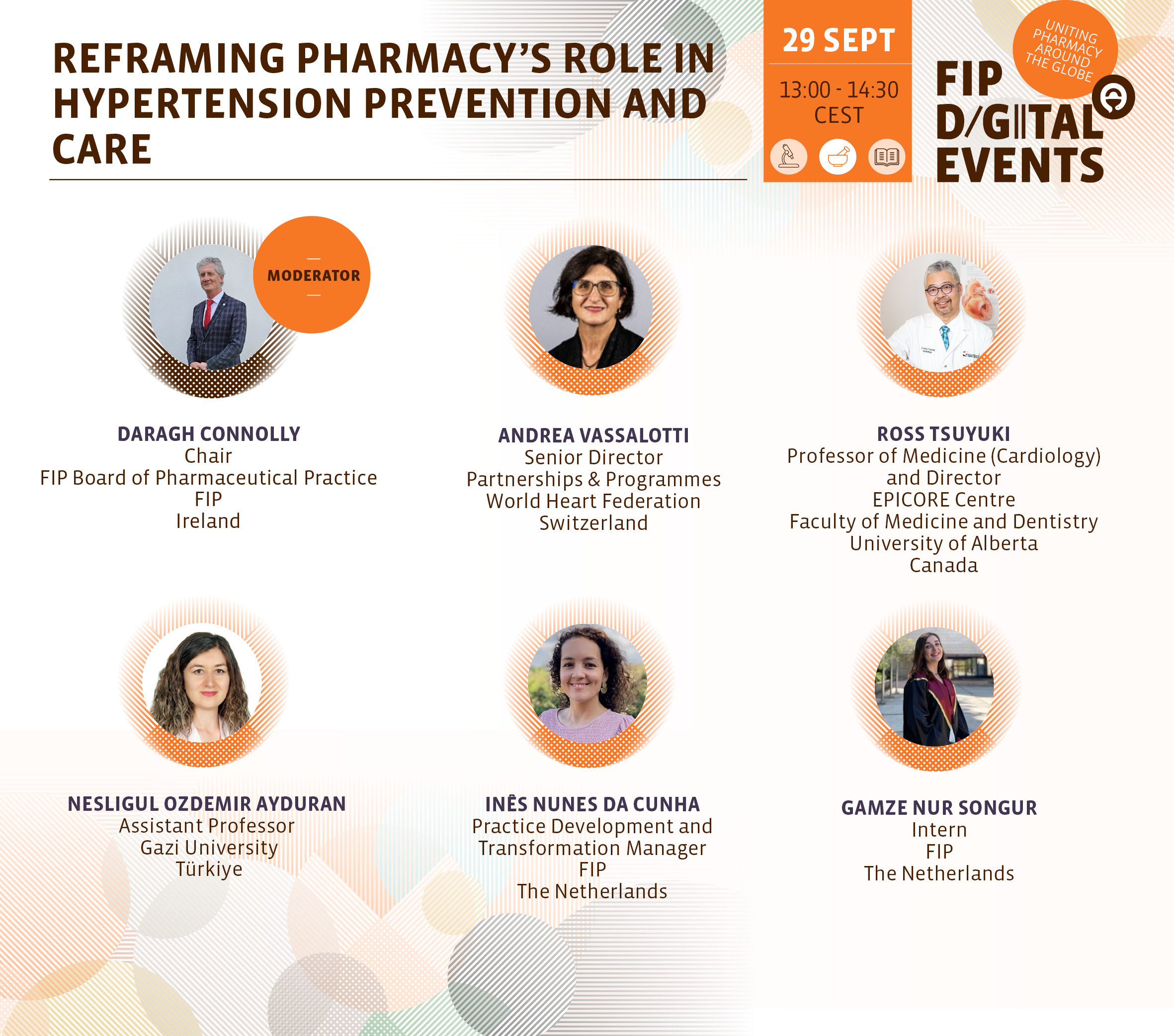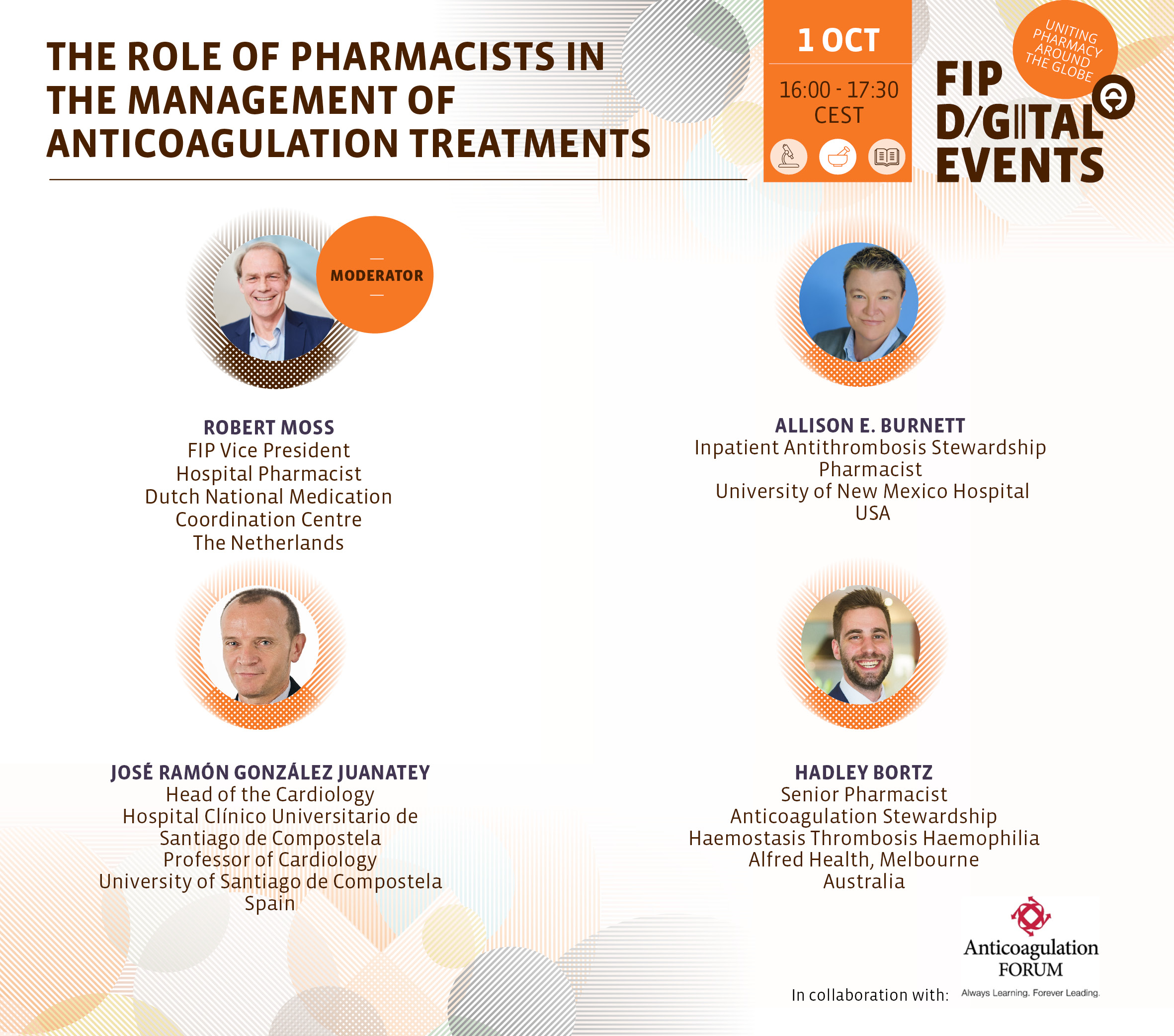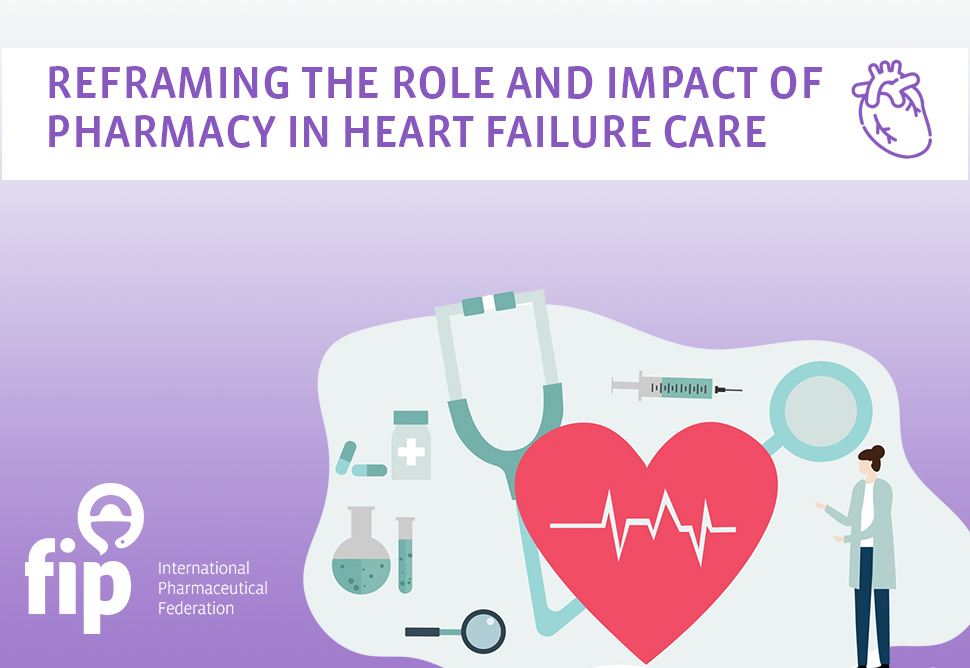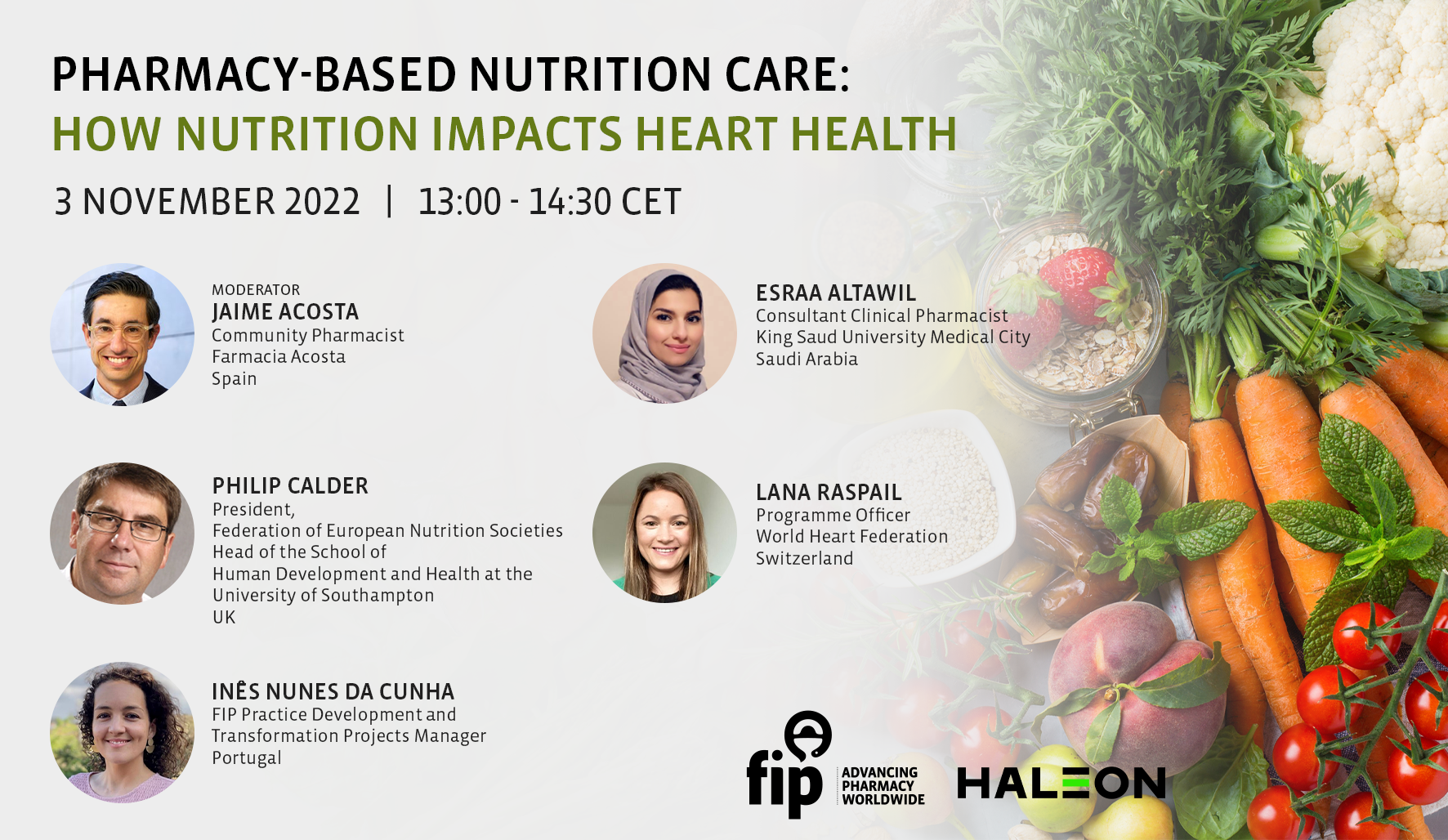
Events/Webinars

Reframing pharmacy’s role in hypertension prevention and care
29 September 2025To mark World Heart Day on 29 September, this digital event spotlighted the critical role pharmacists played in preventing, detecting, and managing hypertension—a leading cause of cardiovascular disease worldwide.
Expert speakers explored the latest hypertension guidelines, multidisciplinary approaches, and the evolving scope of pharmacy practice, showcasing how pharmacists could improve adherence, continuity of care, and patient outcomes. The session also launched the new FIP publication “Hypertension Pharmacy Toolkit”, offering practical tools to support pharmacy teams in delivering evidence-based, people-centred care. The event reframed pharmacy’s role in hypertension prevention and care.

Dyslipidaemia in children and young people: The role of pharmacists in early detection and prevention
16 July 2025Cardiovascular disease often begins early in life, and dyslipidaemia in children and young people is a growing yet under-recognised risk factor. This digital event has explored the definitions, causes, and epidemiological trends of dyslipidaemia in younger populations, as well as the crucial role pharmacists can play in early detection, education, and prevention.
With practical examples and expert insights, the webinar has highlighted how pharmacy teams can contribute to reducing long-term cardiovascular risk through screening, lifestyle interventions, and community engagement.

The role of pharmacists in the management of anticoagulation treatments
1 October 2024Effective anticoagulation therapy requires careful monitoring and management to ensure safety, efficacy and optimal clinical outcomes while preventing complications.
Pharmacists play a key role in the management of anticoagulation therapy through their extensive knowledge of medicines. Their responsibilities include educating patients, identifying medicine interactions, ensuring appropriate dosing and monitoring for adverse effects. This webinar will examine the different roles pharmacists play in anticoagulation management and how they can help improve patient care and outcomes. Join us to explore best practice, current research and practical examples of pharmacist-led anticoagulation services.

Reframing the role and impact of pharmacy in heart failure care
27 September 2024Heart failure is often interconnected with other chronic diseases (including ischaemic heart disease, hypertension, diabetes, chronic kidney disease, atrial fibrillation, and obesity), creating a complex web of health considerations.
The interconnectivity manifests in various ways, influencing identification, diagnosis, and treatment of these conditions.Community pharmacists are in a unique position to raise awareness, identify those at risk, educate and facilitate early detection and referral for screening, diagnosis, and intervention. At this event, the “Heart Failure Pharmacy Toolkit” to support pharmacists in providing a range of HF pharmacy services will be presented.

Role of the Pharmacist in the Management of Heart Failure
20 December 2023Heart failure is a common condition worldwide. According to the World Health Organization (WHO), it affects an estimated 26 million people globally and is projected to increase in the coming years due to aging populations and increasing rates of risk factors such as obesity, diabetes, and high blood pressure.

Pharmacy-based nutrition care: How nutrition impacts heart health
3 November 2022How nutrition impacts heart health is the focus of this event, the last and final one in the ‘Food for thought: Pharmacists’ role in healthy nutrition.
’ The webinar aims to examine the interlinks between nutrition and heart health, its role in the prevention and management of cardiovascular diseases, how pharmacy-based nutrition services can support patients with heart conditions.
The event aims to:
- Understand how nutrition impacts heart health
- Describe the importance of pharmaceutical care for heart health with a focus on supplements
- Highlight the important role of pharmacists in improving heart health and preventing cardiac disease.

Transforming pharmacy practice for improved care and management of cardiovascular diseases
26 October 2022The World Health Organization estimate that 17.9 million people die from cardiovascular diseases each year, representing 32% of all global deaths. Pharmacists have a role to play in the prevention, care and management of cardiovascular diseases and their complications.
FIP has developed a new handbook to support pharmacists and their organisations in providing a range of cardiovascular diseases-related services. This handbook — which will be launched at this event — also identifies the knowledge and skills that pharmacists require for the provision of such services, thus offering guidance to academic institutions and CPD providers. This handbook is part of the FIP Practice Transformation Programme on Non-Communicable Diseases

Pharmacy-based anticoagulation management
13 October 2021Anticoagulant therapy requires appropriate monitoring and management to ensure safety and effectiveness of the treatment, avoid complications and to achieve optimal clinical outcomes.
Pharmacists can play an important role in anticoagulation therapy management through their expert knowledge of medicines. This role also includes the provision of patient education, identification of drug interactions, monitoring for dose appropriateness and checking for adverse effects. This webinar will explore the various roles that pharmacists can play in providing anticoagulation management services.

